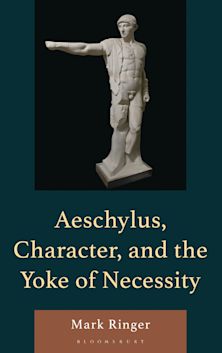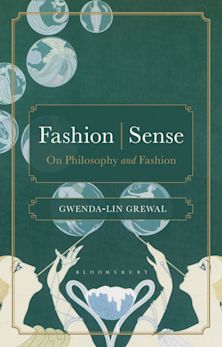The Guardians on Trial
The Reading Order of Plato's Dialogues from Euthyphro to Phaedo
The Guardians on Trial
The Reading Order of Plato's Dialogues from Euthyphro to Phaedo
This product is usually dispatched within 1 week
- Delivery and returns info
-
Free US delivery on orders $35 or over
Description
Based on a conception of Reading Order introduced and developed in his Plato the Teacher: The Crisis of the Republic (Lexington; 2012) and The Guardians in Action: Plato the Teacher and the Post-Republic Dialogues from Timaeus to Theaetetus (Lexington; 2016), William H. F. Altman now completes his study of Plato’s so-called “late dialogues” by showing that they include those that depict the trial and death of Socrates. According to Altman, it is not Order of Composition but Reading Order that makes Euthyphro, Apology of Socrates, Crito, and Phaedo “late dialogues,” and he shows why Plato’s decision to interpolate the notoriously “late” Sophist and Statesman between Euthyphro and Apology deserves more respect from interpreters. Altman explains this interpolation—and another, that places Laws between Crito and Phaedo—as part of an ongoing test Plato has created for his readers that puts “the Guardians on Trial.” If we don’t recognize that Socrates himself is the missing Philosopher that the Eleatic Stranger never actually describes—and also the antithesis of the Athenian Stranger, who leaves Athens in order to create laws for Crete—we pronounce ourselves too sophisticated to be Plato’s Guardians, and unworthy of the Socratic inheritance.
Table of Contents
Preface: The Reading Order of Plato's Dialogues from Euthyphro to Phaedo
Introduction: The Guardians on Trial
1 Beginning the End with Euthyphro
1. “The Great Parmenides”
2. Piety and Parricide
2 Plato's Trilogy: Sophist, Statesman, and Apology of Socrates
3. The Image of the Philosopher in Sophist
4. The Sophist in Plato's Statesman
5. Apology of Socrates as Plato's Philosopher
3 Hipparchus-Minos: Conversing with the Weeping Jailor
6. Reading Order and Authenticity
7. Basanistic Pedagogy in Plato's Hipparchus
8. Plato's Minos: The Snuggest Fit of All
4 Crito-Laws-Epinomis: Socrates vs. the Athenian Stranger
9. Achilles in Athens
10. The Athenian Stranger as “Socrates” in Flight
11. The Theological-Political coup d'etat of Laws 13
12. Halfway Toward Epinomis: Reading Laws 7
13. A Tale of Two Drinking Parties
5 The Immortal Phaedo
14. Putting Cosmology in its Place
15. Cratylus Revisited: a????, Hades, and Apollo
16. Immortality
Product details
| Published | Jul 19 2016 |
|---|---|
| Format | Hardback |
| Edition | 1st |
| Extent | 638 |
| ISBN | 9781498529518 |
| Imprint | Lexington Books |
| Dimensions | 9 x 6 inches |
| Publisher | Bloomsbury Publishing |
Reviews

ONLINE RESOURCES
Bloomsbury Collections
This book is available on Bloomsbury Collections where your library has access.



































